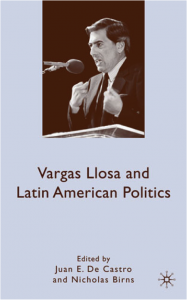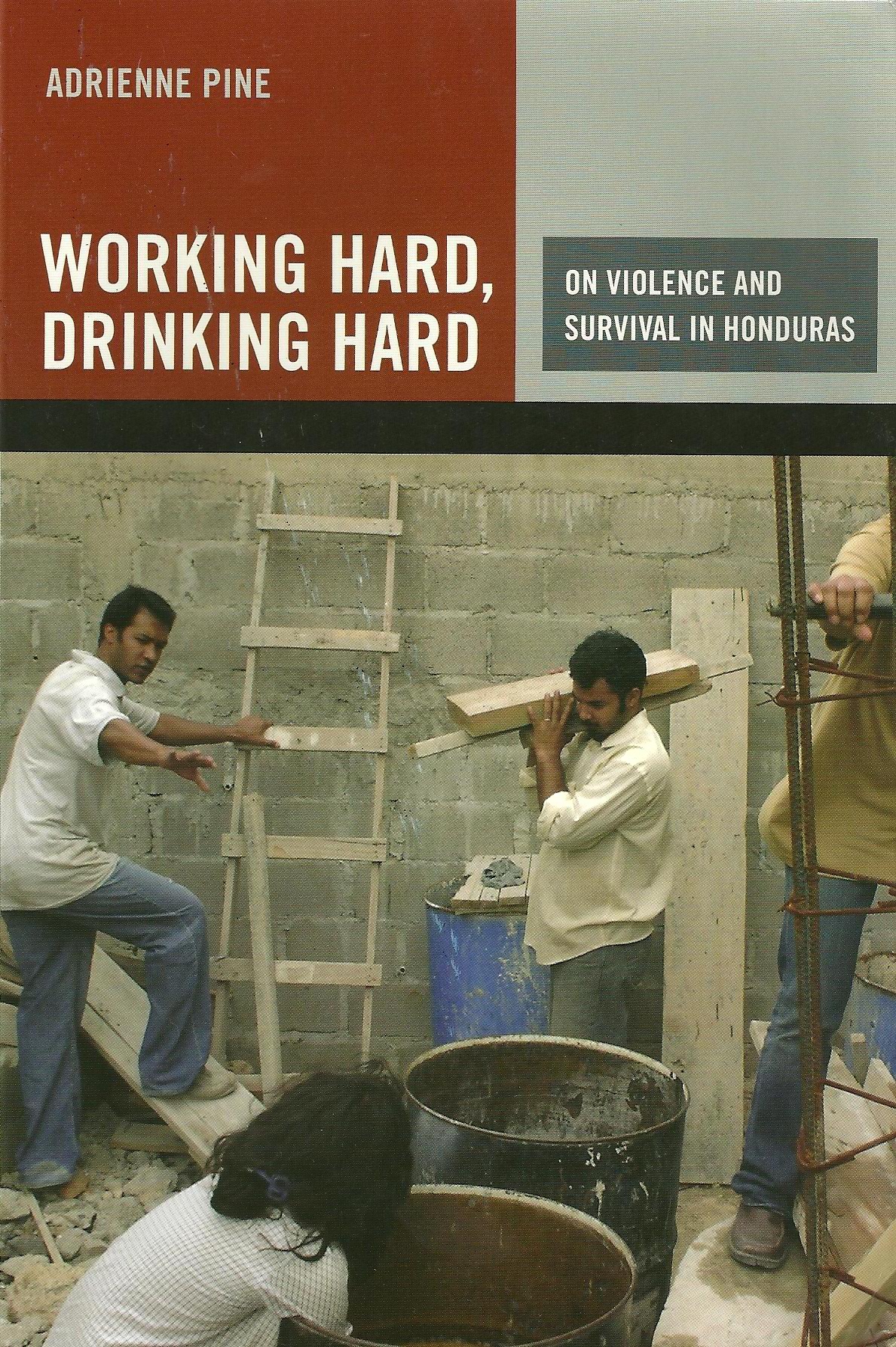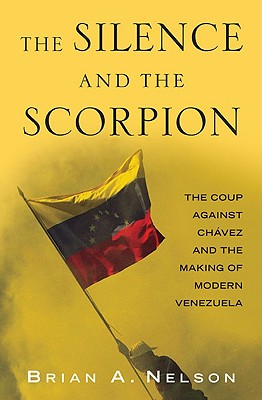Books Recommended for the COHA Readership
Edited by Juan E. De Castro and Nicholas Birns

Written from diverse perspectives, the eleven essays that make up Vargas Llosa and Latin American Politics portray the Peruvian novelist not only as one of the most celebrated writers of the last 50 years, but also as a central influence on the region’s political evolution. Ever since his conversion to free market ideology in the 1980s, Mario Vargas Llosa has waged public battle against what he believes are the scourges of socialism and populism. This book studies the fiction and journalism of Vargas Llosa in the context of his political thought.
Nicholas Birns is a Senior Research Fellow at the Council on Hemispheric Affairs. He is currently an Associate Teaching Professor at Eugene Lang College, the New School for Liberal Arts, in New York, and the author of Theory After Theory (Broadview, 2010).
Juan E. De Castro is an Associate Professor at Eugene Lang College, the New School, and the author of The Spaces of Latin American Literature (Palgrave, 2008).
On Violence and Survival in Honduras
by Adrienne Pine

Published before the start of Honduras’ democratic crisis, Adrienne Pine’s “Working Hard, Drinking Hard: On Violence and Survival in Honduras” situates the oft-repeated claim that “Honduras is violent” at the center of her vivid and nuanced chronicle of Honduran subjectivity. Through an examination of three major subject areas—violence, alcohol, and the export-processing (maquiladora) industry—Pine explores the daily relationships and routines of urban Hondurans. She views their lives in the context of the vast economic footprint on and ideological domination of the region by the United States, powerfully elucidating the extent of Honduras’s dependence. She provides a historically situated ethnographic analysis of this fraught relationship and the effect it has had on Hondurans’ understanding of who they are. The result is a rich and visceral portrait of a culture buffeted by the forces of globalization and inequality.
Adrienne Pine is a recently appointed Senior Research Fellow at the Council on Hemispheric Affairs, Washington, DC. She received her PhD from University of California Berkeley and her articles and studies on Honduras have appeared in more than 15 publications, lectures and presentations relating to that country. She is currently an Assistant Professor in the Anthropology Department at American University and served for more than three years as a lead educator and researcher for the California Nurses Association.
Crumbling Walls, Rising Regions
by Terrence Edward Paupp

The Future of Global Relationscenters on two intertwined themes: (a) the collapse of US global hegemony and (b) the rise of a multi-centric world order of regional powers from China to Africa, from Latin America to India, from the Middle East to Russia and the European Union. The ascendancy of these regional powers means that humanity has reached a historical turning point that signals the incapacity and impracticality of empire-building, thereby bringing an end to the search for hegemony and efforts by one nation to achieve domination or primacy over all others. The future of global relations will be defined by a more integrated and mutually cooperative world order of regions in which there are multiple centers of political and economic power. These regional centers will continue to mature under the ideology of “regionalism” and through the long historical process of “regionalization.”
Terrence Paupp is Senior Research Fellow at the Council on Hemispheric Affairs, Washington, DC. Between 2001 and 2004, he served as National Chancellor of the United States for an NGO operating under the auspices of the United Nations called The International Association of Educators for World Peace (IAEWP).
The Silence and the Scorpion:
The Coup Against Chavez and the Making of Modern Venezuela
by Brian Nelson

On April 11, 2002, nearly a million Venezuelans marched on the presidential palace to demand the resignation of President Hugo Chávez. Led by Pedro Carmona and Carlos Ortega, the opposition represented a cross-section of society furious with Chávez’s economic policies, specifically his mishandling of Venezuelan oil. But when the march clashed with Chávez loyalists near the palace a bloody gun battled ensured, sparking a military revolt that led to the temporary ousting of Chávez. Over the next turbulent 72-hours, Venezuelans would confront the deep divisions within their society and ultimately decide the best course for their country – and its oil – in the new century.
Drawing on unprecedented access to government ministers, diplomats, and military leaders, Brian A. Nelson has woven a mesmerizing minute-by-minute account of the coup that reads like a thriller. An exemplary piece of narrative journalism, THE SILENCE AND THE SCORPION provides rich insight into the complexities of modern Venezuela.
Brian Nelson is a former COHA Research Associate and now teaches for Johns Hopkins University.
by Sean Burges

Since 1992 – the end of the Cold War – Brazil has been slowly and quietly craving a niche for itself in the international community: that of a regional leader in Latin America. How and why is the subject of Sean Burges ‘ investigations.Under President Fernando Henrique Cardoso, Brazil embarked on a new direction vis-à-vis foreign policy. Brazilian diplomats set out to lead South America and the global south without actively claiming leadership or incurring the associated costs. They did so to protect Brazil’s national autonomy in an ever-changing political climate. Burges utilizes recently declassified documents and in-depth interviews with Brazilian leaders to track the adoption and implementation of Brazil’s South American foreign policy and to explain the origins of this trajectory. Leadership and desire to lead have, until recently, been a contentious and forcefully disavowed ambition for Brazilian diplomats. Burges dispels this illusion and provides a framework for understanding the conduct and ambitions of Brazilian foreign policy that can be applied to the wider global arena.
Sean W. Burges is an adjunct professor with the School of Political Studies at the University of Ottawa and a senior research fellow with the Washington, D.C. – based Council on Hemispheric Affairs. He has published on Brazilian foreign policy and inter-American affairs in the Miami Herald, The Washington Times, The Journal of Commerce, The National Post, The Washington Report on the Hemisphere, FOCAL Point, Brazzil Magazine, Analise Internacional, the Oxford Analytica Daily Brief, and in academic journals such as Third World Quarterly, Cambridge Review of International Affairs, International Journal, International Relations, and the Bulletin of Latin American Research.
by Nikolas Kozloff

This is the riveting and frightening story of ambitious, tempestuous and avowed anti-American Hugo Chávez, who is making waves through South America and being widely compared to Fidel Castro. Ex-paratrooper, outspoken socialist, and brash personality, Chávez is known for his stance against big business, fearless threats to the Bush administration, social reforms that have violently polarized his country, and claims that he will soon unite South America. As gas prices rise to unprecedented highs, Venezuela’s importance surges as the fifth largest oil exporter in the world. Nikolas Kozloff’s access to top advisors, members of the opposition, and leaders of Chávez’s own political movement allow him to present a comprehensive portrait of Chávez as he runs for re-election and moves into the global spotlight.
Nikolas Kozloff received his Ph.D in Latin American History from Oxford University and is a Senior Research Fellow at COHA.
America and Cuba after the Cold War, 1989-2001
by Morris Morley and Chris McGillion

In this first comprehensive study of U.S. policy toward Cuba in the post-Cold War era, Morris Morley and Chris McGillion draw on interviews with Bush and Clinton policymakers, congressional participants in the policy debate, and leaders of the anti-sanctions business community to argue that Bush and Clinton operated within the same Cold War framework that shaped the Cuba policy of their predecessors. They also demonstrate that U.S. policy after 1989 was driven principally by domestic imperatives. The result was the pursuit of a policy that had nothing to do with its stated objectives of promoting reforms in Cuba and everything to do with dismantling Castro’s regime. This study also addresses the international consequences: the extraterritorial applications of national laws to America’s allies; and a willingness to put in danger the operations of the global free trade regime. Few issues more starkly revealed the degree to which U.S. policymakers exhibited a striking lack of realism about America’s capacity to impose its will globally.
Morris Morley and Chris McGillion are Senior Research Fellows at COHA.
Hugo! The Hugo Chavez Story from Mud Hut to Perpetual Revolution
by Bart Jones

Bart Jones knows Venezuela intimately and was an eyewitness to President Hugo Chávez’s rise to power. In Hugo! he tells the story of Chávez’s impoverished childhood, his military career and the decade of clandestine political activity that ended in a failed attempt to seize power in 1992. He describes the election campaign against a former Miss Universe that finally won Chávez the Presidency and the dramatic reversals of fortune that have marked it.
The History and Policies of the Chavez Government
by Gregory Wilpert

Since coming to power in 1998, the Chávez government has inspired both fierce internal debate and horror amongst Western governments accustomed to counting on an obeisant regime in the oil-rich state. Is Venezuela going through a peaceful, democratic “Bolivarian revolution,” with the country’s poor becoming politically engaged and beginning to share its oil wealth? Or is Chávez leading his country towards Latin American caudillismo at best, or Castro-style communism at worst?
In this rich and resourceful study, Greg Wilpert exposes the self-serving logic behind much middle-class opposition to Venezuela’s elected leader, and explains the real reason for their alarm. He argues that the Chávez government has instituted one of the world’s most progressive constitutions, but warns that they have yet to overcome the dangerous spectres of the country’s past: its culture of patronage and clientelism, its corruption, and its support for personality cults—all of them fuelled by the attention and interference of a succession of US administrations.

